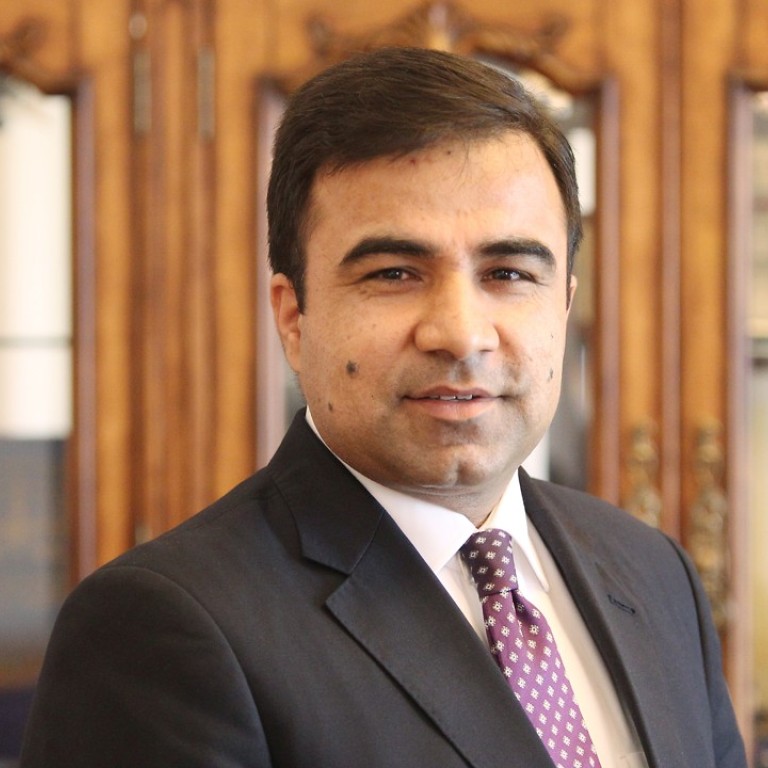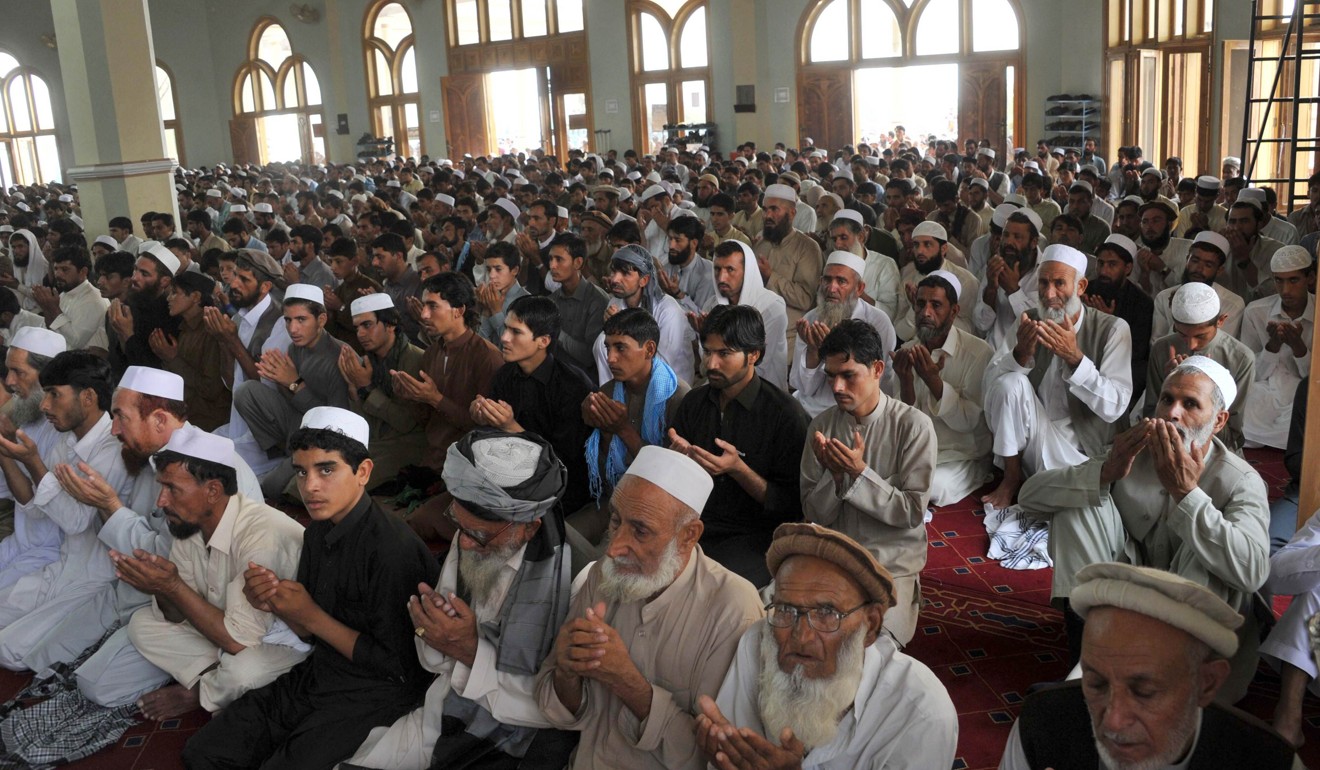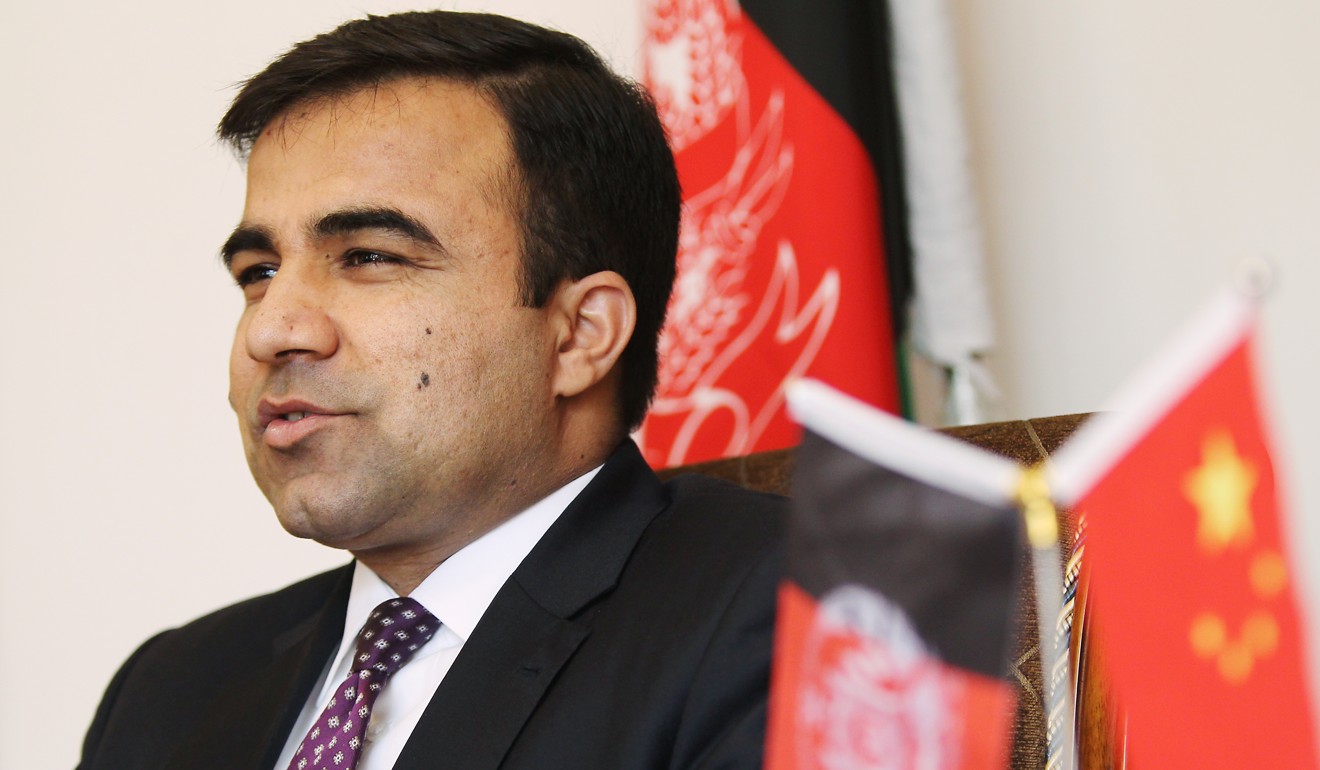
Exclusive | China and US can cooperate – not compete – over Afghanistan, says envoy
Janan Mosazai, Afghanistan’s Ambassador to China, says the South Asian republic’s neighbour could play a key role in war-torn nation’s revival
Afghanistan is a unique platform for cooperation, rather than competition, between China and the US in the face of rising challenges and threats to regional peace and stability, the Afghan Ambassador to China said.
In an exclusive interview with the Post, Janan Mosazai added that China, an immediate neighbour with a growing economic footprint in Afghanistan and in the wider region, could become a key player in the effort to revive the war-torn nation’s role as a regional hub. Beijing seeks to boost its global influence under its ambitious One Belt, One Road Initiative with trade-boosting infrastructure projects.
“Afghanistan is also the first country that is in a trilateral cooperation mechanism with both China and the United States,” the ambassador said. “And there aren’t other countries in the world that have been able to play this unique role. Afghanistan is playing the role.”

Questions have been raised in recent years regarding the extent to which China, which elevated its relationship with Kabul to a Comprehensive Strategic Partnership in 2012 while keeping a communication channel with the Taliban, will fill the vacuum that will be left by the US in Afghanistan. The Obama administration announced it would withdraw US military forces in 2014, though the plan was halted in 2015 because of deteriorating security in the country that was beset by the Taliban, Al Qaeda and militants from Islamic State.
“In the area of our counter-terrorism efforts, but also in the area of our efforts towards peace talks, China and the US have both played constructive roles,” the Afghan ambassador said during the interview at the Afghan embassy in Beijing.
“We see an important role for both countries in terms of supporting the Afghan-led and Afghan-owned efforts towards peace in Afghanistan,” he said. “That’s another very important area where we look to both countries for strong support and we are grateful for the support that we have received and expect and hope that that would intensify this year.”
Mosazai referred to a trilateral cooperation mechanism with both China and the United States, under which many young Afghan diplomats have received training in China and Washington, and the three sides have been exploring areas for further cooperation.
China is also a member of theQuadrilateral Coordination Group of Afghanistan, under which China and the US, together with Pakistan - which allegedly funded and supported the Taliban - , have joined with the Afghan government to push forward an Afghan-led and Afghan-owned peace and reconciliation process. The aim is to bring an end to the lingering conflict in Afghanistan, especially between the Kabul government and the Taliban.
China and the US also provide billions of dollars in economic aid, as well as training, equipment and support for Afghanistan’s national defence force and training for government staff, he said.
Although the road to reaching peace deals in Afghanistan is widely expected to be long and bumpy, Mosazai said that US-China cooperation in Afghanistan would help bring the war-ravaged country peace and stability, as well as economic prosperity, “and in turn contribute to peace, stability and economic development in the region and the world”.
Kabul’s strategic partnership with Washington is “very clear” and “will continue for a long time”, Mosazai said. China, as a next-door neighbour, however, has been placed in the first circle of Afghanistan’s diplomacy, a role that was nailed down by Afghan President Ashraf Ghani in 2014.
Unlike the US and other Western powers, China was reluctant to become deeply involved in the war-ravaged country’s issues, citing its traditional practise of non-interference in other nations’ internal affairs.

In recent years, a shift has occurred. China is facing increasing security challenges in its western region of Xinjiang, a Muslim-majority area that borders with Afghanistan. Hundreds have died there in the unrest Beijing has blamed on Islamist separatist groups such as the East Turkistan Islamic Movement, although activists have said that Beijing’s brutal suppression of Muslim culture is driving the fight.
Meanwhile, security concerns tied to China’s ambitious infrastructure investment plans in the region - part of Chinese president Xi Jinping’s flagship One Belt, One Road Initiative to connect China through Central, South Asia and the Middle East to Africa and Europe - are believed to have motivated Beijing to work more closely with Afghanistan on a national security strategy.
In addition to jointly providing military equipment that has been used, Mosazai said, to directly combat terrorism and extremist groups that threaten security and stability in the region, Beijing and Kabul this year will undertake the first-ever joint counter-terrorism exercise in China.
“We have had a very strong and a very productive and effective cooperation mechanism between Afghanistan and China in terms of counter-terrorism, particularly in the areas of fighting the so-called East Turkistan Islamic Movement, and that’s something we will continue for sure in the future,” he said.


